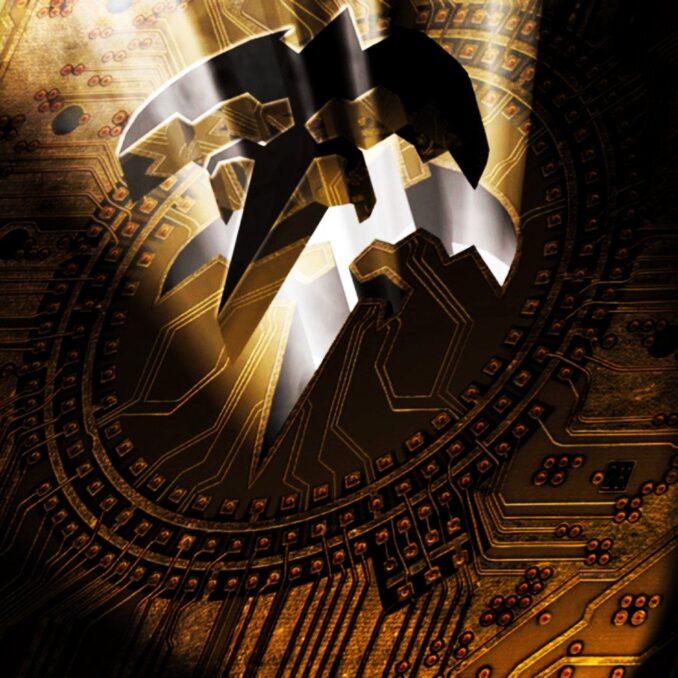
Summary
Rhino / Atlantic
Original release date: September 14, 1999
Re-release date: August 29, 2006
Run Time: 65+ minutes – 15 tracks
User Review
( votes)After a fairly anti-climatic effort in Hear In The Now Frontier, Queensrÿche was clearly at a critical crossroad … founding member and main songwriter Chris DeGarmo had flat out “packed up and left,” as conveyed to Metal Express Radio by Geoff Tate during the 2005 Queensrÿche Rockumentary. Geoff called a band meeting at his home one night, and he, along with Eddie Jackson, Scott Rockenfield, and Michael Wilton all decided they indeed wanted to continue on as Queensrÿche, and wanted to do so with Kelly Gray as the new guitarist. Kelly had been a friend of the band for quite some time, and used to play with Geoff Tate in the early 80’s in a band called Myth.
Bringing in Kelly provided a shot in the arm to the band’s enthusiasm, especially for Geoff Tate, who had grown overly accustomed, if not lethargic, with his DeGarmo writing routine rituals. Kelly Gray was a bit of a loose cannon … a talented musician with a penchant towards pursuing the pleasures in life, and bringing him on board definitely brought spice and a renewed passion during the songwriting process. That passion becomes pretty evident after listening to about the first 30 seconds of Q2K, the cleverly titled late 1999 release by Queensrÿche.
“Falling Down” starts off the album with a magnificent richness to the sound, with added complexity and precision … musical traits that DeGarmo apparently tended to shy away from in the later years, instead opting for a more simplistic, if not radio-friendly approach in his songwriting and recommendations. In fact, “Falling Down” is one of the better songs ever written by Queensrÿche … but there’s more … “Sacred Ground” and “One Life,” tracks 2 and 3, are equally as impressive, giving the listener the impression that this new line-up was indeed “on” to something special.
The album is unable to maintain the full head of steam exemplified in the first 3 tracks for the remainder of the album, but other songs such as “How Could I?,” “Breakdown,” and “Burning Man” certainly show continued inspiration and innovativeness. If anything, all 11 original tracks on Q2K are all at a minimum “good” songs, with the first 3 qualifying as outstanding, and the 3 just mentioned qualifying as very good … it’s the high quality of these 6 tracks that create a tinge of disappointment in the other 5, even though the remainder of the album still exemplifies a fairly strong effort.
Because of the album’s timing (late 1999), and the fact that it was a Progressive Metal album, rather being Grunge or some hybrid of Nu-Metal (which was evolving at the time), Q2K failed to get the respect and attention that it deserved. The album isn’t as revolutionary as Operation: Mindcrime, or as completely catchy as Empire, but it still demonstrated a band that found its fountain of youth, and is a solid effort throughout.
With Queensrÿche’s new label relationship surrounding Operation: Mindcrime II, Rhino has opted (with Atlantic) to give this album another shot at glory, so to speak, by re-releasing Q2K with 4 bonus tracks: 2 of them studio tracks — “Until There Was You” and “Howl,” along with a live version of “Sacred Ground” and a radio edit version of “Breakdown.” There is also an insightful narrative written by Geoff Tate in the liner notes, describing what was happening with the band at this time, and what was to follow with Kelly Gray in the band and on tour. For diehard Queensrÿche fans, the addition of these 2 new studio tracks cause this album to be a “must buy,” but for persons not familiar with the original release of this album, both of these studio tracks will likely simply increase the number of “good songs” on the album from 5 to 7, with the aforementioned 6 outstanding/very good tracks still providing the heartbeat for Q2K. The live version of “Sacred Ground,” unfortunately, seems less inspired than the studio version and the radio edit version of “Breakdown” is kind of a “so what” as far as bonus material goes.
All in all, though, in order to further entice fans to purchase this re-release, bonus material is the likely means to grab attention, so no fault – no foul is probably the right call. Q2K certainly can stand on its own merits, and even without these nice additions, the album is a must have for all fans of the band and for fans of Progressive Metal in general. If you haven’t already, check it out now!




Be the first to comment